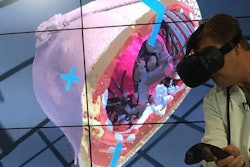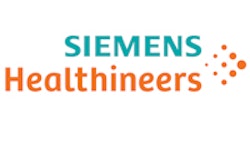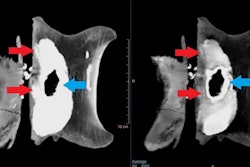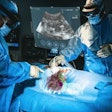Sigmascreening is touting the results of a study that focused on the impact of pressure in breast compression on screening outcomes at RSNA 2016 in Chicago.
The study, presented by Nico Karssemeijer, PhD, from Nijmegen, the Netherlands, found that breast compression with intermediate target pressure may improve breast cancer detection rates. The researchers wanted to determine breast cancer screening outcomes in relation to the compression pressure applied during mammography. After adjusting for confounders, they found that pressure around 75 mmHg (± 5 mmHg) showed the best breast cancer detection rate and the best positive predictive value when compared with lower and higher compression groups.
Sensitivity decreased with increasing pressure, resulting in a higher interval cancer rate in the group with the highest compression pressure. If too much or too little pressure is applied, this may increase the number of interval cancers and decrease the positive predictive value (PPV), the researchers concluded. The data support the introduction and use of pressure-guided compression, according to the vendor.



















